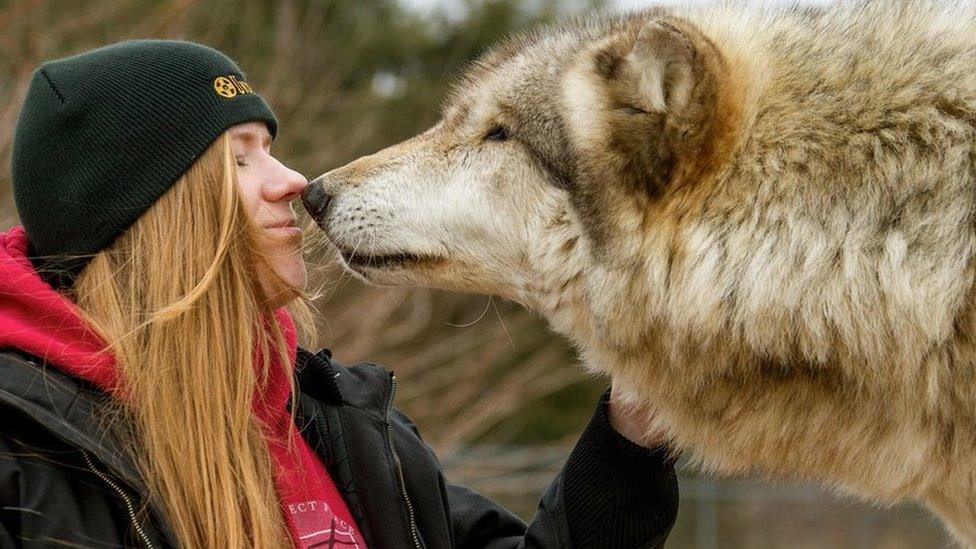Siberia: 18,000-year-old frozen 'dog' stumps scientists
- Published
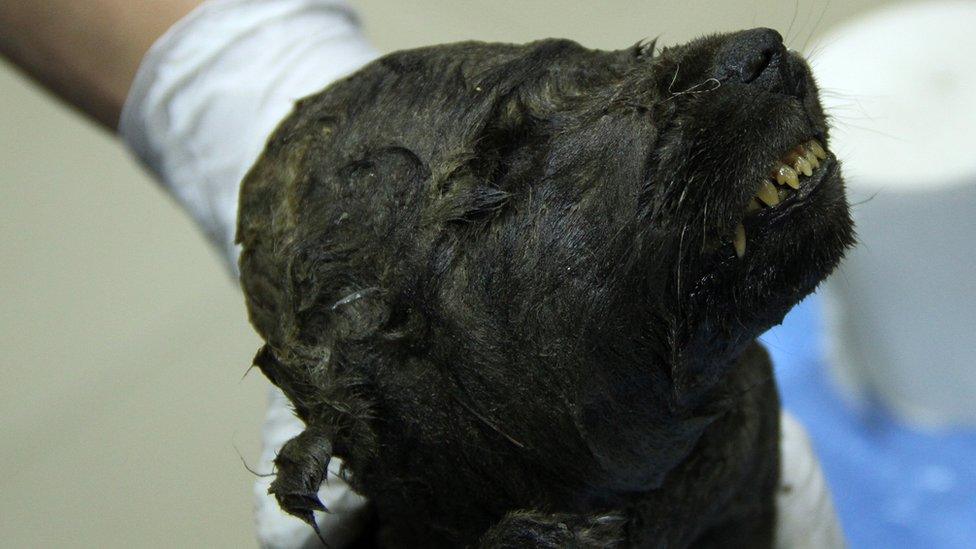
Researchers say the animal could be a dog, a wolf or something in between
Researchers are trying to determine whether an 18,000-year-old puppy found in Siberia is a dog or a wolf.
The canine - which was two months old when it died - has been remarkably preserved in the permafrost of the Russian region, with its fur, nose and teeth all intact.
DNA sequencing has been unable to determine the species.
Scientists say that could mean the specimen represents an evolutionary link between wolves and modern dogs.
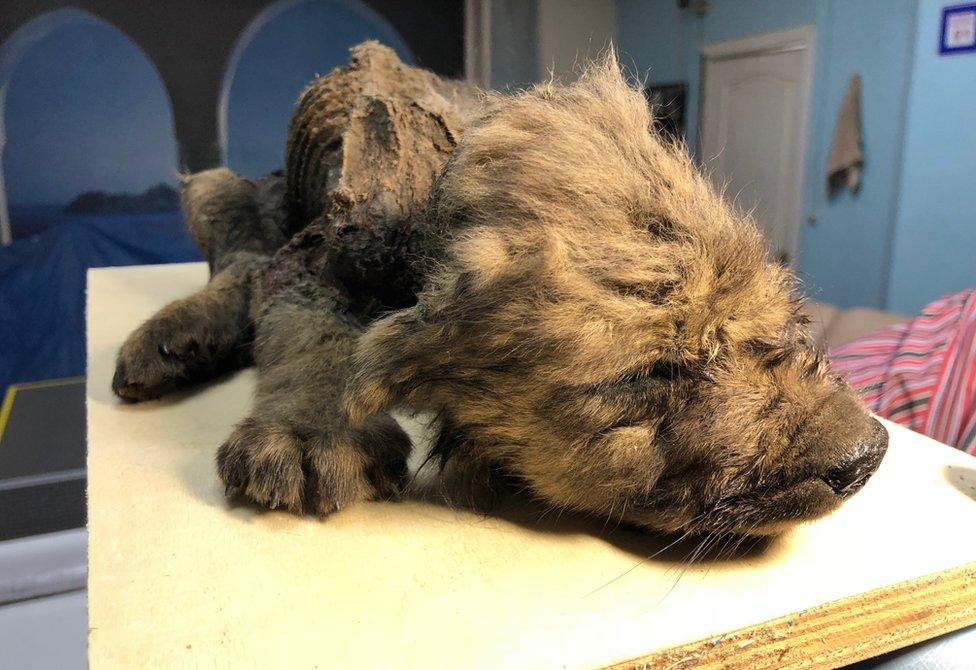
Researchers carefully cleaned the specimen to reveal it was still mostly covered in fur
Radiocarbon dating was able to determine the age of the puppy when it died and how long it has been frozen. Genome analyses showed that it was male.
Researcher Dave Stanton at the Centre for Palaeogenetics in Sweden told CNN the DNA sequencing issue meant the animal could come from a population that is a common ancestor, external of both dogs and wolves.
"We have a lot of data from it already, and with that amount of data, you'd expect to tell if it was one or the other," he said.
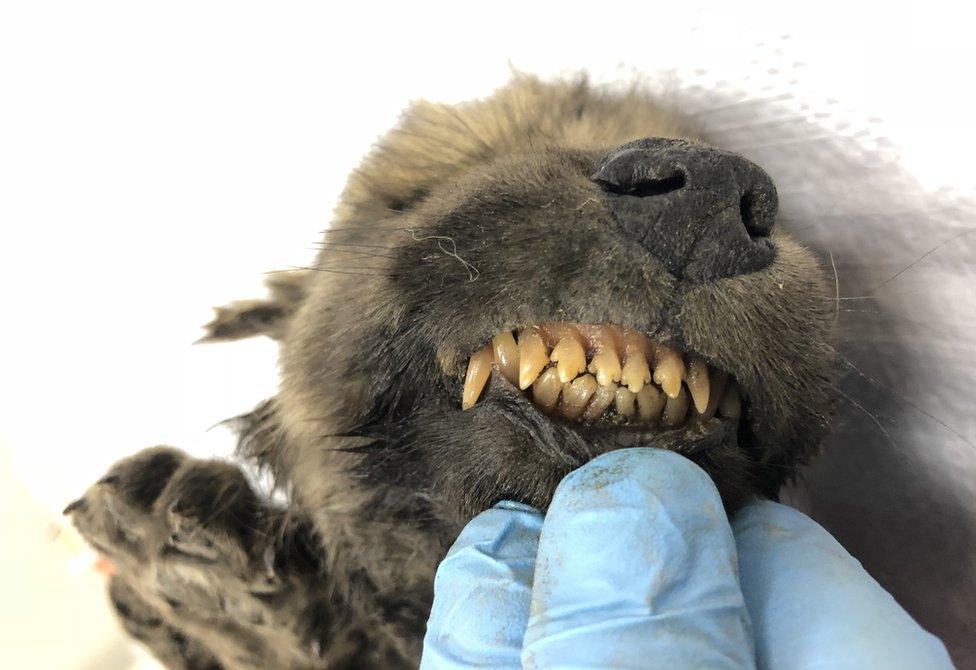
Even the whiskers of the puppy were preserved
Another researcher from the centre, Love Dalen, tweeted a question about whether the specimen is a wolf cub, external or "possibly the oldest dog ever found".
Scientists will continue with DNA sequencing and think the findings could reveal a lot about the evolution of dogs.
The puppy has been named "Dogor", which means "friend" in the Yakut language and is also the start of the question "dog or wolf?"
Modern dogs are believed to be descendants of wolves, but there is debate over when dogs were domesticated.
A study published in 2017 suggested domestication could have occurred 20,000 to 40,000 years ago, external.
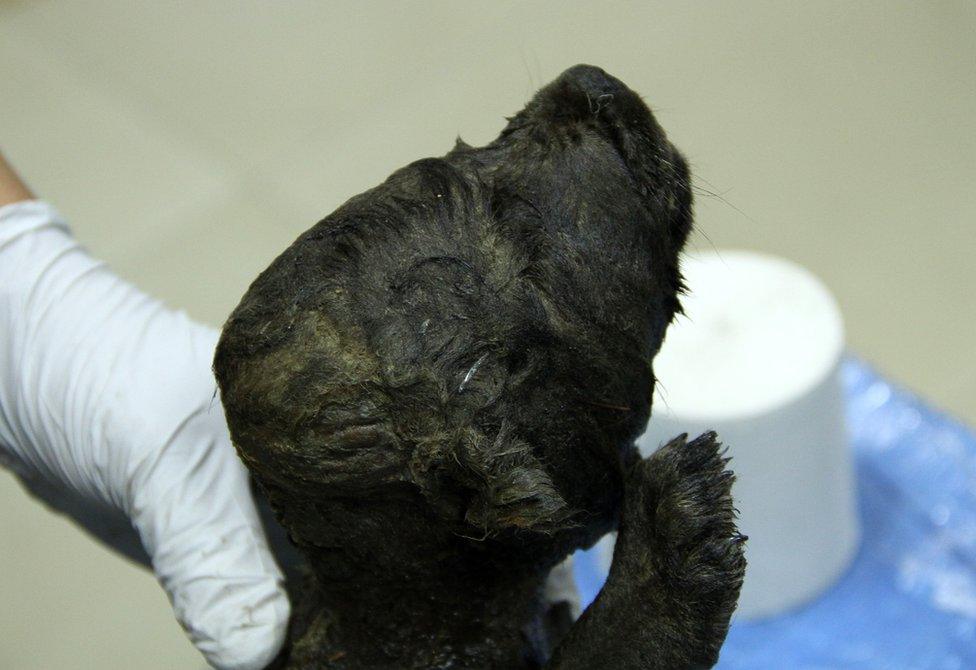
The puppy was found in eastern Siberia near Yakutsk
.
- Published19 July 2017

- Published14 March 2019
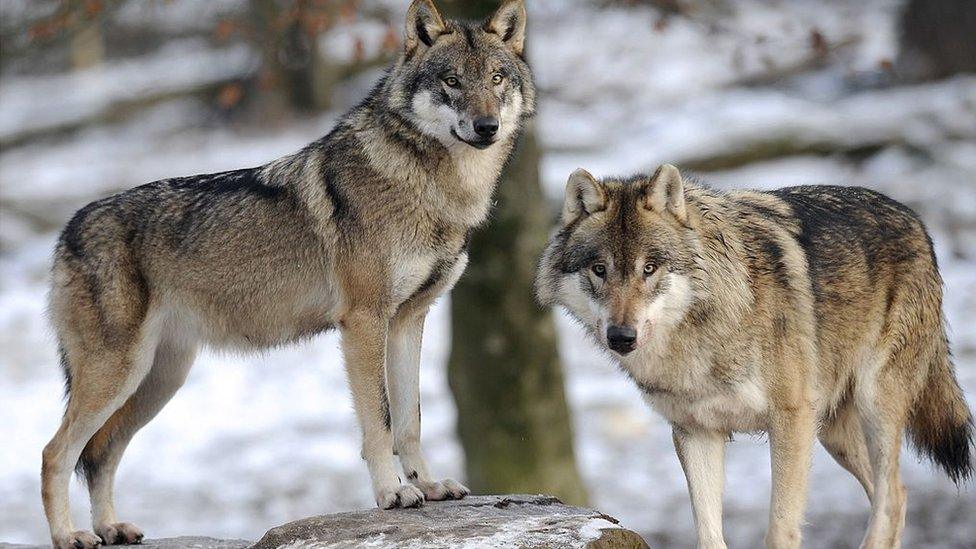
- Published18 June 2019
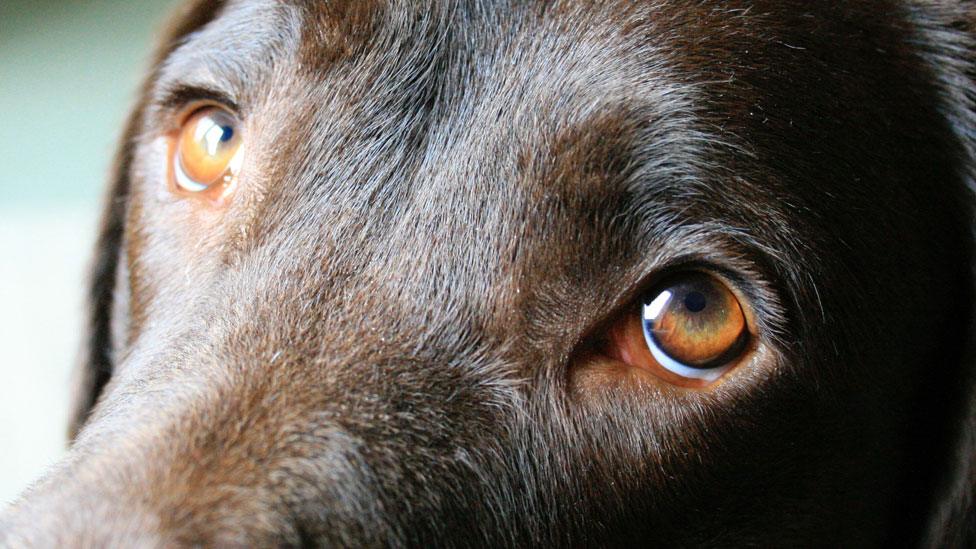
- Published17 October 2018
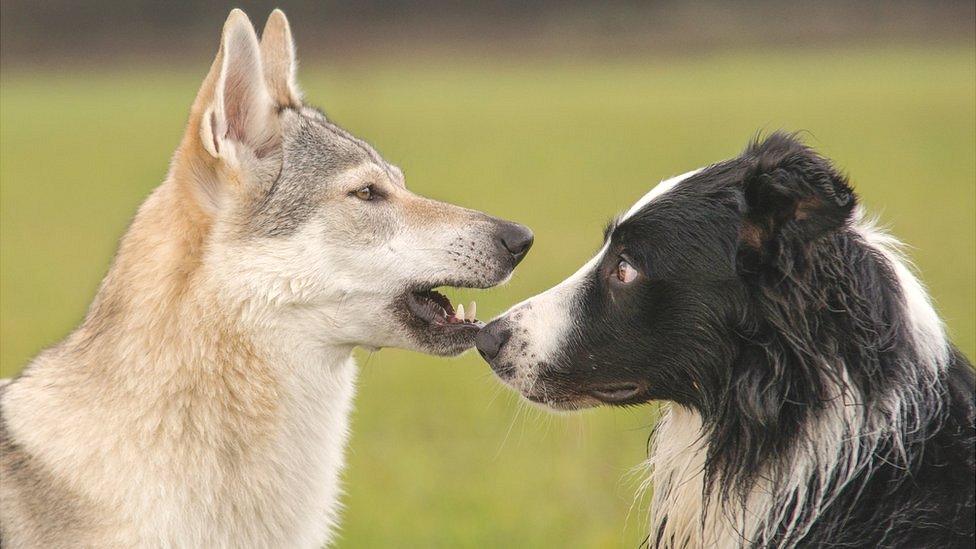
- Published20 July 2017
